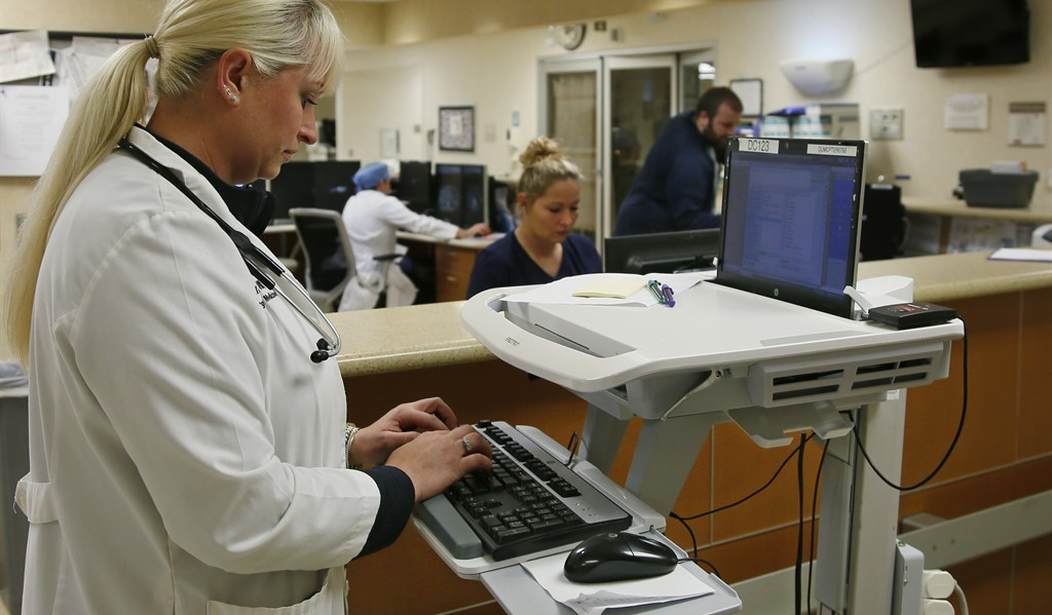President Trump has made ending surprise medical bills a priority for his administration. During a White House speech last year, the president said that the Republican Party not only has become the party of healthcare, but that it is “determined to end surprise medical billing for American patients.” It’s an issue that has impacted millions, driving many to file for bankruptcy. “No family should be blindsided by outrageous medical bills,” President Trump declared. But while Congress works on sending a bill to the president, families are currently facing high unexpected medical costs.
One family recently received a $145,000 surprise bill. They had to consider filing for bankruptcy after their insurance company didn’t cover their child’s hospital stay. Fortunately, a doctor successfully fought their insurer, which was hoping the family would just give up and accept the bill. “We hate our insurance companies,” the mother of the family said after finally being cut loose from their surprise medical bill.
She’s not alone. Every year, millions of patients across the country find a surprise bill in the mail—and 86 percent of them blame their insurance companies for this. Patients are often hit with a surprise bill after they were checked in to an in-network emergency room, but were treated by a doctor who wasn’t in their insurance network. Many patients, however, don’t have a choice in which hospital they are wheeled into and doctor they see during emergencies, especially those in rural parts of the country that are facing severe doctor shortages. They reasonably assume that they are covered at in-network hospitals.
But the status quo is unreasonable. The multi-billion-dollar insurance industry is gaming the system—and are spending $75 million for ads and lobbyists to blame your neighborhood doctor for out-of-network bills. The industry’s media blitz to gaslight the public isn’t working though, so they’ve decided to cut the middleman—you, the voter—and go directly to government bureaucrats, who are unaccountable to the public’s will. Insurers want them to set government rates for medical care, laughably using surprise medical bills as the justification. They falsely claim this would end out-of-network billing.
Recommended
But, as the political expression goes, “never let a serious crisis go to waste,” as Obama’s former chief of staff Rahm Emanuel once said. Though, the second part of his quote is often left out: “it’s an opportunity to do things you think you could not do before.” Big Insurance has been waiting for a moment like this to push for government rate-setting.
After all, it’s the government that boosted its profits after the previous administration implemented Obamacare, which forced every American to buy insurance. Now insurers are looking to make another killing—this time through government rate setting, which would push doctors and hospitals out of business, particularly in rural areas where the costs of running medical facilities are high. Like Obamacare, patients would be left with fewer options while insurance companies would see bigger profits.
There’s a fair way to fix this without taking the keys from patients and handing them to bureaucrats. Congress can pass Senator Bill Cassidy’s bill to end surprise bills through independent dispute resolution, which has worked in New York and other states. Doctors and insurers would be able to resolve out-of-network bills before an independent arbiter. Under this market-oriented plan, the government would be kept at bay from tinkering with the free market and insurers wouldn’t have an upper hand in the dispute. Patients, on the other hand, would be protected against surprise billing.
President Trump recognizes that Republicans need another win on healthcare before the general election—and this is how they do it. After all, it may be one of the reasons why the president recently endorsed Senator Cassidy. His bill would protect millions of patients from surprise bills. It’s time to rein in Big Insurance—and put patients first.
























Join the conversation as a VIP Member